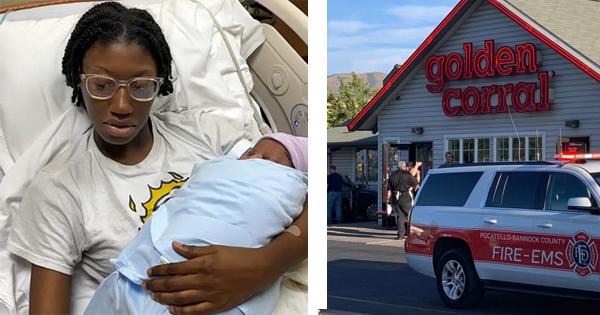
Kira Johnson, the mom who recently died from birth complications
Los Angeles, CA — Kira Johnson, a 39-year old African-American woman, was a beautiful and wonderful wife and mother. But all of that was taken away when she died of childbirth complications. Her family believes she could have been saved if the doctors did not leave her bleeding for over 7 hours.
As they planned to expand their family, they were ecstatic to know that Kira was pregnant again with their second baby. She never missed a prenatal appointment and was in excellent health during her pregnancy.
On April 12, 2016, Kira gave birth through a C-section to a boy, whom they named Langston, at Cedars-Sinai Medical Center in Los Angeles, a world-renowned hospital. Moments later, however, Charles noticed blood in her catheter.
According to reports, Charles alerted the nurses of the situation, and they ordered a series of tests, including a CT scan. He thought it should be an immediate concern but they had them waiting for hours.
“She’s beginning to tremble uncontrollably,” Charles recalled. “She’s beginning to shake. She’s beginning to be in increasingly more pain. She’s becoming sensitive to the touch. There’s still no CT scan.”
After seven hours, the doctors took her for an internal exam that they said would be done in 15 minutes. But “that was the last time I saw Kira alive,” Charles said. Kira died less than 12 hours after giving birth.
An autopsy identified Kira’s cause of death is from a “hemorrhagic shock due to acute hemoperitoneum.” Doctors found three liters of blood in her stomach and her heart suddenly stopped.
Last March, Charles, whose mother is Judge Glenda Hatchett, star of reality court TV The Verdict with Judge Hatchett, filed a medical malpractice and wrongful death lawsuit against the Cedars-Sinai Hospital and the involved doctors for allegedly ignoring Kira’s medical needs.
Meanwhile, Cedars-Sinai recently released a statement regarding Kira’s death that they called “a tragedy.” It said, in part, “Her husband, Charles S. Johnson IV, and his mother, Judge Glenda Hatchett, are demonstrating important leadership in raising awareness of preventable maternal deaths. Cedars-Sinai strongly agrees with Judge Hatchett and the American College of Obstetricians and Gynecologists that no mother should die giving birth.”
Kira is just one of the many women who died during pregnancy or within a year of giving birth. Such tragedy is disparagingly affecting more Black women who are reportedly three to four times as likely to die from pregnancy-related causes as their white counterparts. What’s regretful is that more than half of those deaths could have been preventable, according to Centers for Disease Control and Prevention.
Charles, now an activist in preventing maternal deaths, has established 4Kira4Moms, a nonprofit committed to honor Kira’s life and to prevent other families from experiencing unnecessary birth-related deaths.
“There’s nothing I can do to bring Kira back, but what I can do is send other mothers home with their babies,” Charles told myAJC.








